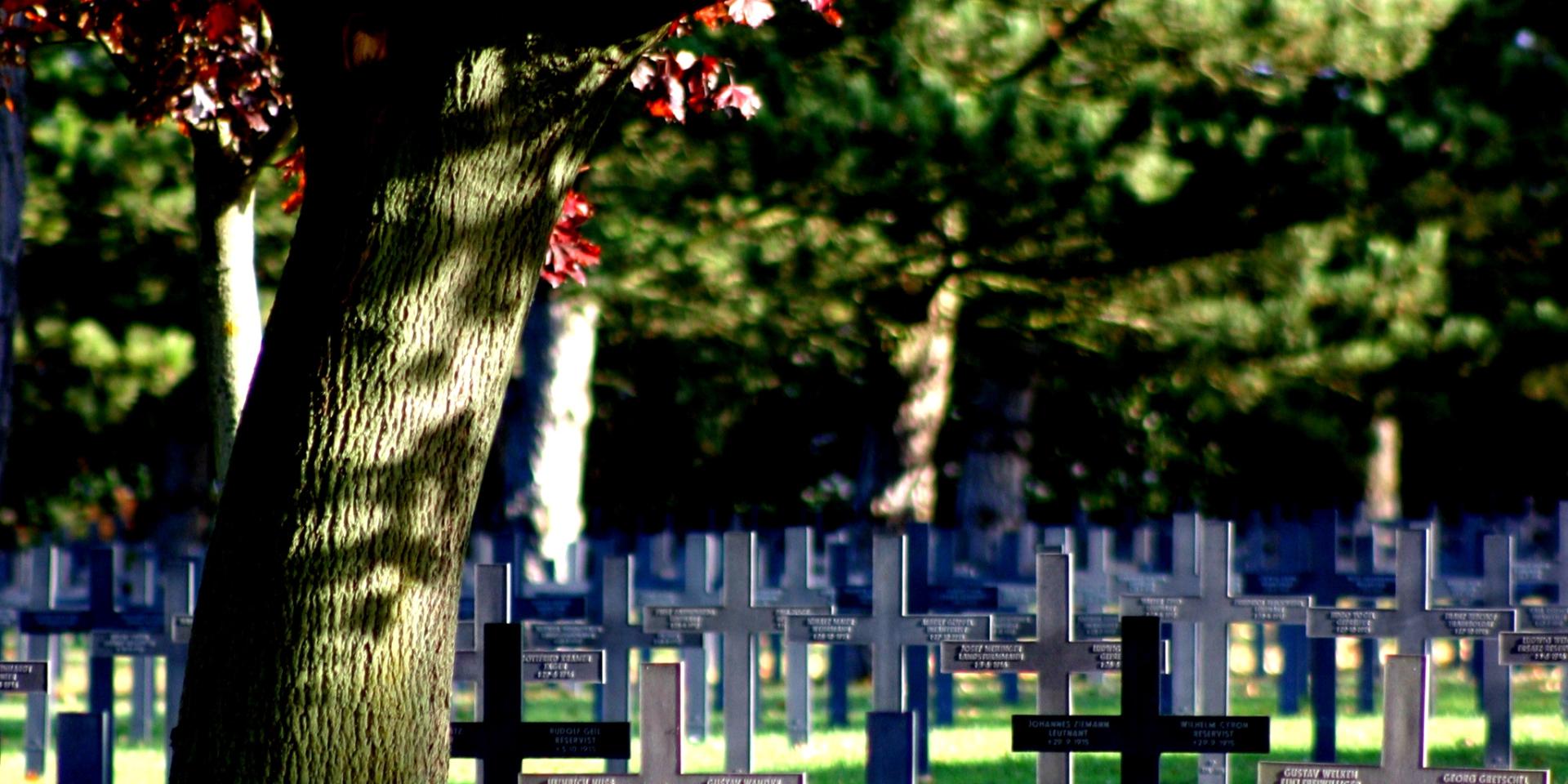In this cemetery, the largest of the country’s German necropolises, were gathered the remains of 44,833 soldiers (including 8,040 unidentified, grouped in a mass grave). They were previously buried in small cemeteries close to the front, in more than 110 communes of the Pas-de-Calais.
Most of these combatants died during the violent fighting in Artois, on the heights of Lorette (1914-1915) and around the hill of Vimy (1917-1918).











































